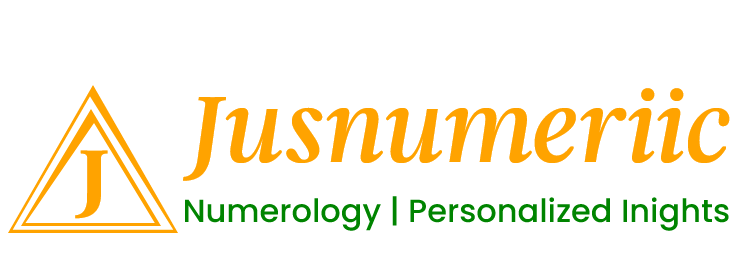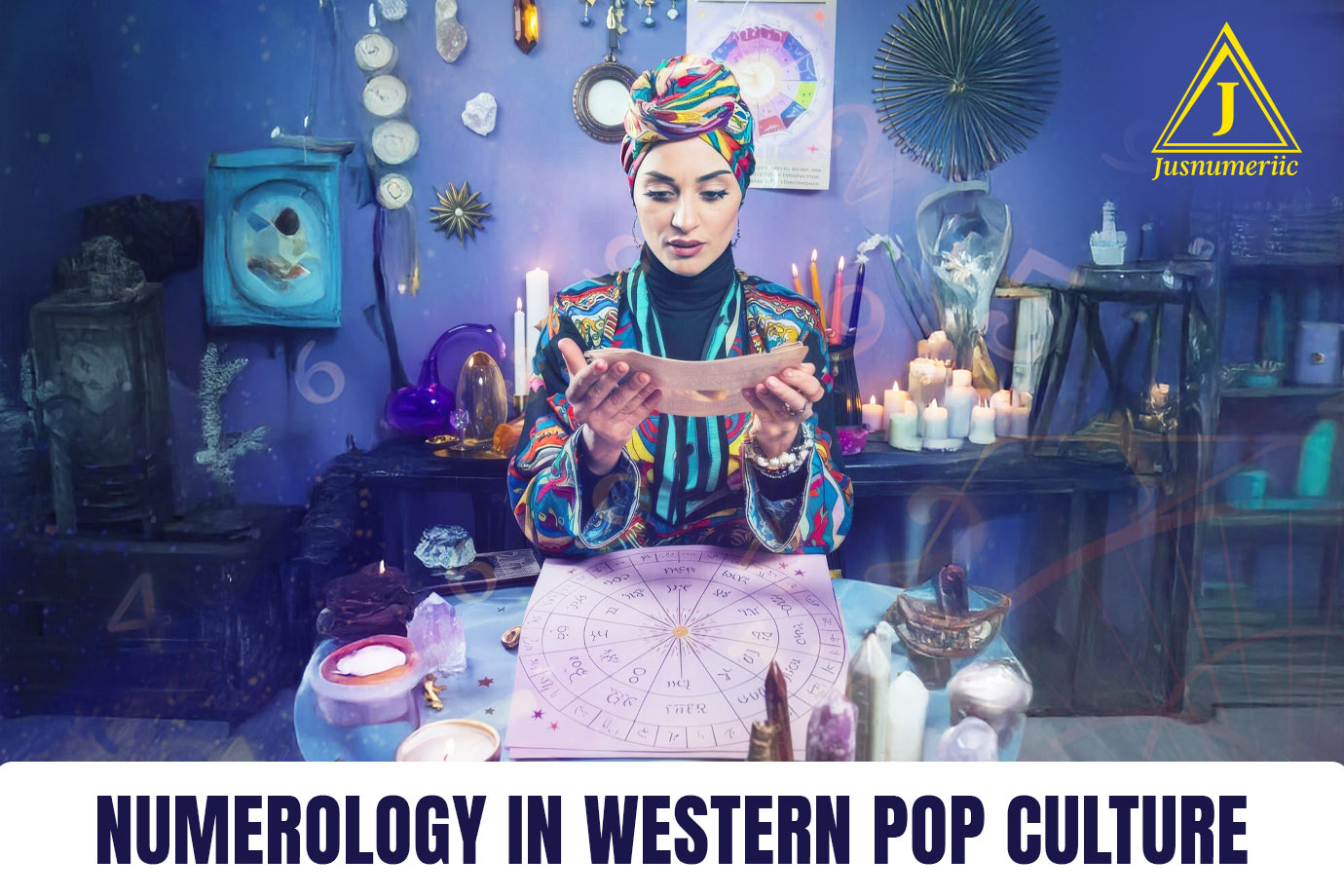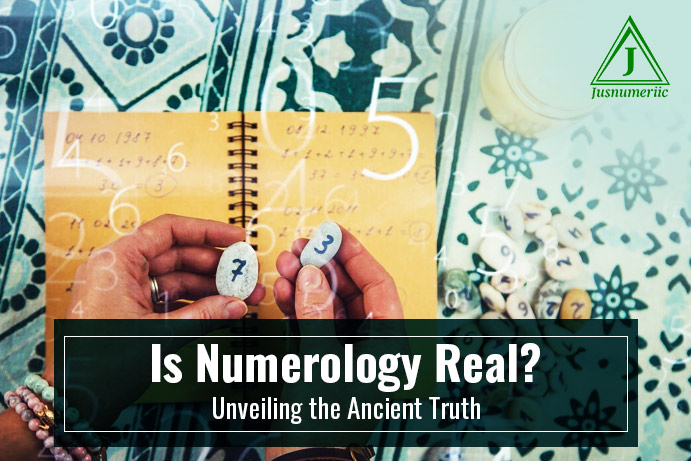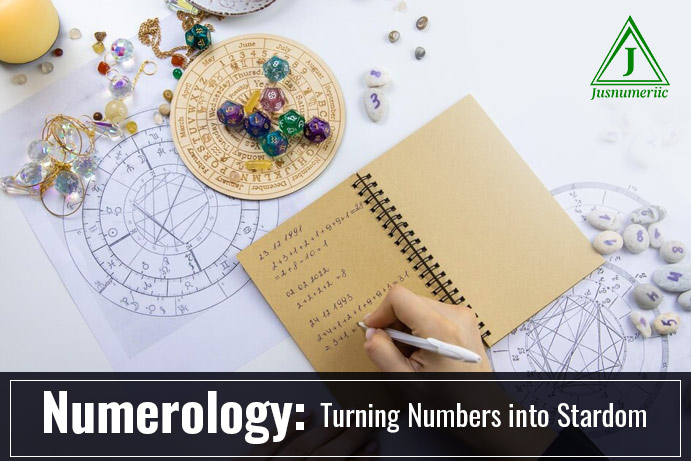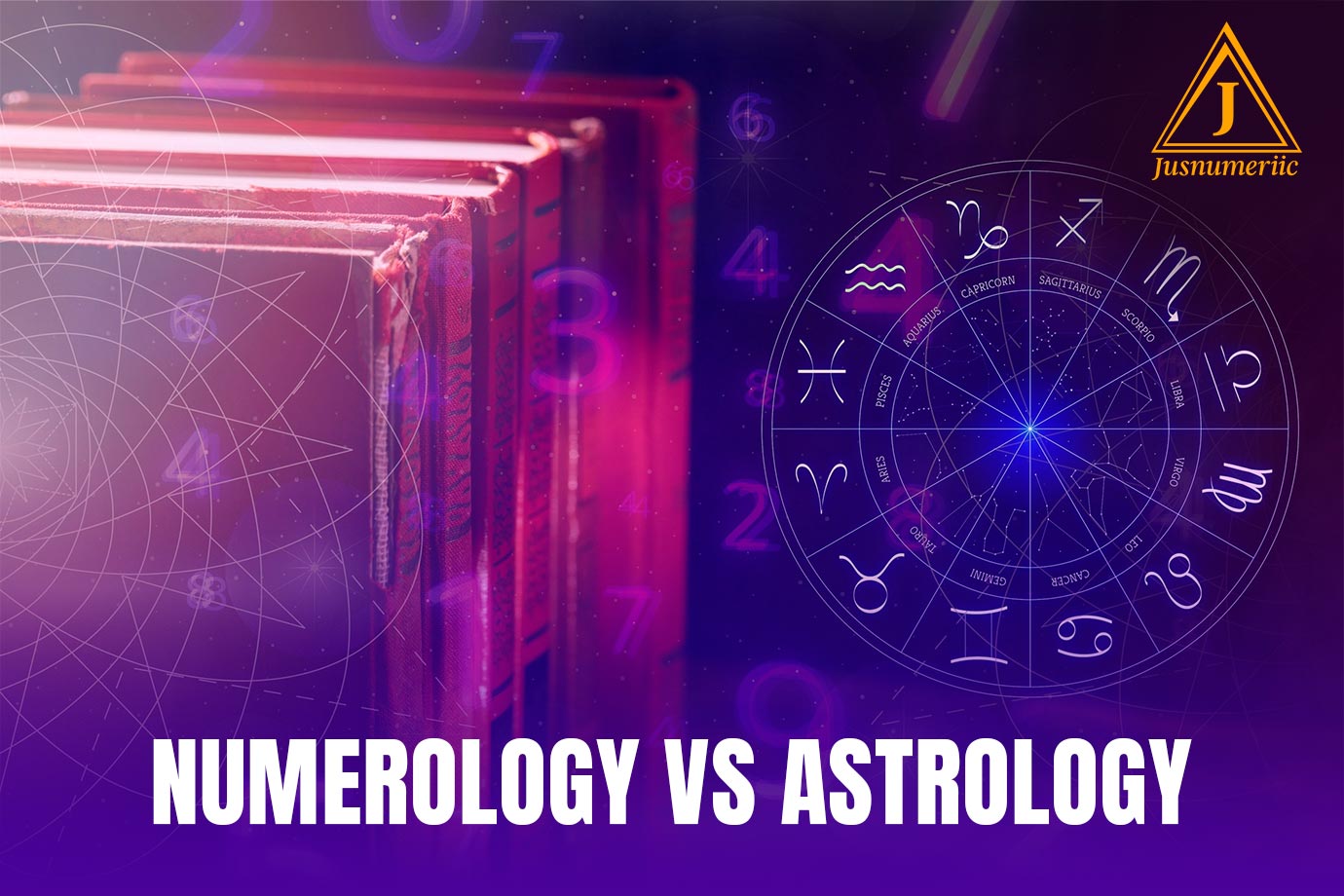Numerology is the ancient belief that numbers – derived from our birth dates and names – carry mystical or vibrational significance in our lives. Many entrepreneurs and influencers are now combining numerology with personal branding to infuse their identity and career with a deeper sense of purpose. In personal branding, where differentiation and authenticity are key, numerology offers an intriguing avenue to imbue a brand with mystique and personalized significance.
Numerology has a long history. Practices like Hebrew gematria (assigning numbers to letters) date back millennia, and even ancient Greece had similar systems. Aristotle noted that Pythagoras (6th century BCE) taught an “isopsephy” method – essentially the Greek precursor to gematria – assigning numeric values to letters. Over time, various cultures (Chinese, Egyptian, Arabic, etc.) developed their own numerology systems, but the modern Western approach usually uses the Pythagorean system (A=1, B=2, … I=9, J=1, etc.). Numerology became part of medieval and Renaissance occultism (e.g. Agrippa’s Occult Philosophy) and today is often associated with astrology and other esoteric arts. Importantly, numerology remains a belief system, not a science; skeptics note that it lacks empirical support and is commonly considered pseudoscientific, relying on subjective interpretations. As you explore this method, treat it as a guidance tool rather than a proven fact, and combine it with practical strategy.
Core Numerology Numbers
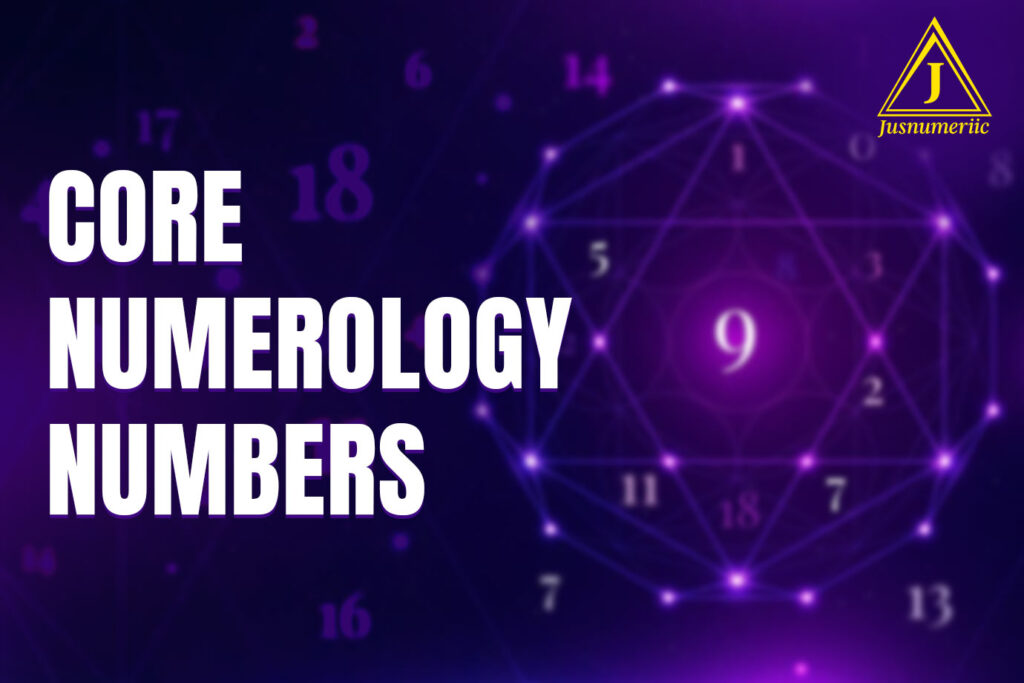
Numerologists focus on several core numbers that supposedly map to your personality, strengths, and life lessons. The most important are:
Life Path Number: Calculated from your full birth date, this number is said to outline your life’s journey and primary traits. It is considered the “blueprint” of your life and never changes. For example, someone born on March 27, 1969 would add 3+2+7+1+9+6+9 = 37, then reduce 3+7 = 10, then 1+0 = 1, yielding Life Path 1. (If the sum is 11, 22, or 33, you keep it as a Master Number rather than reducing it further.)
Expression (Destiny) Number: Derived from the letters of your full name (using a chart like the Pythagorean mapping), this number represents your inherent talents and life mission. In numerology lore, it is the “foundation on which your Life Path can flourish”. You convert each letter of your name to a digit (A=1, B=2, … Z=8, cycling 1–9), sum them, and reduce to a single digit or master number.
Soul Urge (Heart’s Desire) Number: Coming from the vowels in your name (each letter’s numeric value added together), this number reflects your deepest inner motivations and wishes. It is sometimes called the “Heart’s Desire” because it reveals what truly makes you happy and content.
Personality Number: Taken from the consonants in your name, this number is said to represent the outer “mask” you present – how others perceive you at first impression.
Birthday Number: Simply the day of the month you were born. It is considered the least important core number, revealing a special talent or gift given by birth.
Each of these numbers is calculated by simple addition (and reduction) and yields a value between 1–9 (or 11, 22, 33 for masters). Once calculated, numerologists ascribe symbolic meanings to each. For instance, in Western numerology:
1 – The Leader: Independent, creative, assertive and confident.
2 – The Diplomat: Cooperative, sensitive, empathetic, and harmony-seeking.
3 – The Communicator: Playful, creative, social, and optimistic.
4 – The Builder: Practical, disciplined, hardworking, and dependable.
5 – The Adventurer: Freedom-loving, dynamic, curious, and energetic.
6 – The Nurturer: Caring, responsible, community-oriented (often called the “motherhood” number).
7 – The Seeker: Introspective, spiritual, analytical, and wise.
8 – The Achiever: Ambitious, goal-oriented, materialistic, and strong (often linked to success and power).
9 – The Humanitarian: Compassionate, altruistic, idealistic, and worldly.
Additionally, the Master Numbers (11, 22, 33) carry “higher” energy. Master numbers are not reduced: 11 is often called the Master Intuitive or spiritual teacher; 22 the Master Builder; 33 the Master Teacher. They are said to embody intense potential and life lessons. For example, Master numbers hold the highest vibrational energy and are often considered Master Teacher numbers. People with these master core numbers are often described as “old souls” with elevated purpose.
Also Read: Astrology vs Numerology: Spiritual Paths to Destiny
Numerology in Personal Branding

In personal and business branding, your name and numbers can become a strategic asset. Many branding experts now view numerology as a way to ensure brand alignment with identity and life purpose. When creating or refining a personal brand, you ask: what essence do I want to project? Numerology answers by revealing strengths and challenges.
For example, knowing your Life Path number helps shape brand messaging. A client with Life Path 3 (creative, communicative) might build a brand around artistic expression and joy, whereas a Life Path 8 (leadership, ambition) might emphasize authority and success. Whether you are a Life Path 3 with a natural flair for creativity, or a Life Path 8 oriented toward leadership, numerology helps ensure your brand reflects the potential you were born with.
Numerology can influence many branding choices. You might incorporate lucky numbers into launch dates, logos, or pricing. Successful companies often incorporate lucky numbers into their branding — for instance, choosing auspicious founding dates or encoding the sum of their brand name’s letters into logos and materials. Even color choices and taglines can be attuned: numerologists sometimes recommend brand colors and imagery that match the vibration of your core numbers.
By applying these ideas, your personal brand becomes a narrative of numerological purpose. For instance, a numerologist might coach you to highlight the lessons and gifts of your Life Path and Expression numbers in your “About” story or key messaging. A person with a 9 might emphasize philanthropy and global vision, while a 1 might highlight leadership and innovation. The goal is coherence: your name’s numbers, your identity, and your brand promise all vibrate together.
Calculate Your Key Numbers
Before rebranding, you need to know your core numerology numbers. Follow these steps:
Life Path Number: Write your full birth date (MM/DD/YYYY) and add all the digits. Reduce by adding the digits of the sum until you get 1–9 (unless you hit 11, 22, or 33, in which case stop). For example, March 27, 1969 → 3+2+7+1+9+6+9 = 37 → 3+7=10 → 1; so Life Path = 1. This number “captures your entire being” and never changes.
Expression (Destiny) Number: Use the Pythagorean chart to convert your full birth name (as written on your birth certificate, including middle names) into numbers. Add all the letters’ values and reduce to 1–9 (or 11/22/33). This yields your Expression number, revealing your natural talents and destiny.
Soul Urge (Heart’s Desire) Number: From your full name, isolate the vowels (A, E, I, O, U, and sometimes Y). Convert those vowels to numbers using the same chart and add them together, reducing to 1–9 (or master). This number “signifies the reasons behind the choices you make in all aspects of your life” – your deep inner motivations.
(Optional) Personality & Birthday Numbers: You can also derive your Personality number (from the consonants) and your Birthday number (the day of the month you were born) for extra insight. These are lesser factors, but some brands consider them too (e.g. a company might note its “lucky” founding day).
Adjusting Your Name or Brand Name
Once you have your key numbers, you can tune your name or brand to better align them. Numerologists often check compatibility between the name’s number and the person’s numbers. If there’s a mismatch, practitioners suggest correcting the name. This can include adding, removing, or changing letters in the name (while keeping it pronounceable and meaningful).
Alter spelling: A classic example is adding or dropping a silent letter to change the sum. For instance, Bollywood actor Ritik Roshan added an “H” to become “Hrithik Roshan,” and Rajkumar Rao added an “M” (becoming “Rajkummar Rao”) on numerological advice. These small tweaks change the name’s vibrations.
Shorten or lengthen: Companies do this often. Numerology aside, we saw Dunkin’ Donuts become Dunkin’, Nike became Nike, Inc., etc. Similarly, a brand might drop a word or adopt an acronym to hit a favorable number.
Rename completely: In some cases, rebranding with an entirely new name is recommended. One testimonial describes an Indian firm whose directors “were not getting the speed [of growth] they wanted…[so] we changed the name of our company to BKT Media Pvt. Ltd. and everything changed. We are very successful”. The founder says aligning the name’s number with the directors’ numbers made the difference.
Add new word: Entrepreneurs might add a tagline or symbol (e.g. “LLC” vs “Co.”) if it improves the numerology.
As with any change, consider brand identity and legality (e.g. trademark issues). But many find that a carefully calculated name creates positive momentum. A compatible name number attracts luck and success, while an incompatible one can invite struggle, so corrections aim to tilt the odds in your favor.
Case Studies and Examples
BKT Media (India): In a published testimony, the Chairman of BKT Media credits numerological renaming for his success. He reports that after a numerologist suggested changing “BKT Academy & Films Pvt. Ltd.” to “BKT Media Pvt. Ltd.” – better matching the directors’ numbers – the company became much more successful and business accelerated. This real-life case highlights how a name change (even a small one) was linked by the owners to improved results.
ONGC Logo (India): A case study describes how Oil and Natural Gas Corporation (ONGC) consulted a numerologist to adjust their company logo. The report claims that after fine-tuning the ONGC logo’s numerology, the company experienced accelerated growth and success. Such testimonials are anecdotal, but they illustrate the belief in numerology’s impact.
Celebrities (International): Many public figures have reportedly altered their names for numerological reasons. For example, astrologers note that Hrithik Roshan (actor) and Rajkummar Rao (actor) added letters as above, and singer Katy Perry changed from “Katheryn Hudson” to “Katy Perry” (picking her mother’s surname). These changes coincide with career successes, which practitioners attribute to better numerological alignment.
Global Brands Using Numbers: Even some major brands include numbers (though not always for numerology). Think of 7‑Eleven, Forever 21, Boeing 747, Chanel No. 5, etc. While these may have marketing reasons, a design blog notes that numbers can reflect a brand’s personality or beliefs. For instance, Chinese companies often use “8” in phone numbers or launch dates because 8 is lucky. These examples show the widespread human desire to leverage number symbolism in naming.
Also read: Numerology: Turning Numbers into Stardom
Workbook: Exercises to Align Your Name and Brand

Use this section as a practical guide. Grab a notebook and work through the prompts:
Exercise 1 – Calculate Your Numbers: Write down your birth date (e.g. 04/15/1985). Calculate your Life Path as shown above. Next, write your full legal name and convert it to numbers using the Pythagorean chart. Compute your Expression number. Then extract the vowels and compute your Soul Urge number. Record each result.
Exercise 2 – Reflect on Meanings: For each number you found (Life Path, Expression, Soul Urge), list the keywords or traits associated with that number (you can use the meanings above). Ask yourself: do these traits resonate with who you feel you are, or what you want your brand to be? Write a few sentences. If something feels off, note it down. For example, “My Life Path is 8 (leadership), but I feel more like a creative artist, so maybe I should emphasize that in my brand in a different way.”
Exercise 3 – Explore Alternative Names: If your current name/brand number doesn’t feel aligned, brainstorm alternatives. Consider adding or removing letters. For each idea, quickly calculate the new Expression number. For example, if your name number is 5 but you want it to be 3, see if adding an “H” or “Y” changes it. List at least three variants.
Exercise 4 – Test Your Brand Name: If you have a business or brand name, calculate its Name Number (treat it like a full name). Compare it to your personal core numbers. Are they compatible (similar or supportive)? Brand numerologists often match the brand’s name number with the founder’s Destiny (Expression) or Heart’s Desire number for harmony. If there’s a clash, jot down potential fixes (see Exercise 3) or consider if a different brand name would better capture your purpose.
Exercise 5 – Choose & Implement: Based on your calculations and reflections, pick the name or spelling that best aligns all your numbers. Practice introducing yourself or your brand with this name. Over time, observe if it feels more authentic or seems to attract more of the outcomes you seek.
Caveats, Best Practices, and Cultural Notes
Use Wisely: Remember that numerology is a belief system, not a guarantee. Numerology relies on subjective interpretation rather than objective verification and is considered pseudoscientific by mainstream science. Do not take it as literal destiny. Instead, use it like a mirror or compass – a way to reflect on your goals. Combine numerology with market research, audience feedback, and common sense.
Beware of Confirmation Bias: Our brains naturally look for patterns. If you believe a number is lucky, you might only notice the times it seems to work. A rational critique warns that numerology’s predictions can seem accurate due to confirmation bias – people remember hits and forget misses. Stay grounded: if a change doesn’t produce real results over time, don’t blame yourself; just adjust accordingly.
Cultural Differences: Numerology varies by culture. The Western system outlined here is one approach. For example, Chinese numerology has its own rules: in China, 8 is considered extremely lucky (associated with wealth) and 4 is considered unlucky (sounds like “death”). So if you work internationally, be sensitive to how numbers are viewed in different markets. A “7” might be lucky in one tradition but not in another. Also, certain cultures or religions may discourage reliance on occult practices – consider your audience’s beliefs.
Legal and Brand Constraints: Changing a name can have practical limits. You may need to keep the brand recognizable. Always check trademarks and domain names. If you add a letter or word, make sure it still communicates clearly to customers. Sometimes a slight tweak (like Dunkin’ Donuts ➔ Dunkin’) is enough; other times a full rebrand is needed. Consider working with a branding professional or numerologist to navigate these changes smoothly.
Consistency Over Time: Some believe that once you start using a new name/spelling, you should use it consistently (for example, always sign contracts with the new name). Others say it’s the intention that matters most. Regardless, pick an approach and stick with it long enough to see its impact.
Ethical Use: Avoid using numerology to discriminate or make big life decisions without evidence. It’s a complementary tool. For hiring or finance, always follow fair practices.
The 2025 Trend: Spiritual Branding Gains Ground
As of 2025, integrating spirituality and personal development into business is more mainstream. Articles in both popular media and academic journals note this shift. A recent study even proposes using numerology as a complementary approach in HR, aligning candidates’ birth numbers with workplace needs. Marketing experts similarly observe that young entrepreneurs are open to archetypal and spiritual frameworks when defining their brands.
Recent blogs discuss blending astrology and numerology into brand strategy, and trend reports for 2025 emphasize authenticity and personal narrative in branding.
Younger professionals often speak of finding purpose, living authentically, and designing destiny. Numerology fits into that zeitgeist by offering a structured way to connect personal identity with professional image. Whether or not you believe in it metaphysically, using a tool like numerology to clarify your mission and values can be empowering.
Conclusion
Numerology turns your name and birth date into a set of guiding numbers – your Life Path, Destiny, Soul Urge, and others – each symbolizing qualities and challenges. By calculating these numbers and understanding their meanings, you can craft a personal brand that resonates deeply with your identity and values. This might involve fine-tuning your brand name’s spelling or choosing brand elements (logo, tagline, launch date) that carry the vibration of your purpose. Real-life stories (from BKT Media to celebrities) suggest this practice can feel transformative for those who try it.
However, always approach numerology with healthy skepticism and balance. It should complement, not replace, solid marketing research and hard work. If you do choose to experiment, keep an eye on outcomes, and adapt as needed. For those wanting personalized guidance, professional numerologists can provide a detailed reading of your numbers and how they might best align with your goals.
By blending intuition with intent, many find that even a symbolic alignment of name with life purpose can sharpen their focus and confidence. As one numerology consultant remarked, “If you feel you’re moving on the right path, there is nothing better than that.” Align your name with your number and step forward with purpose.
